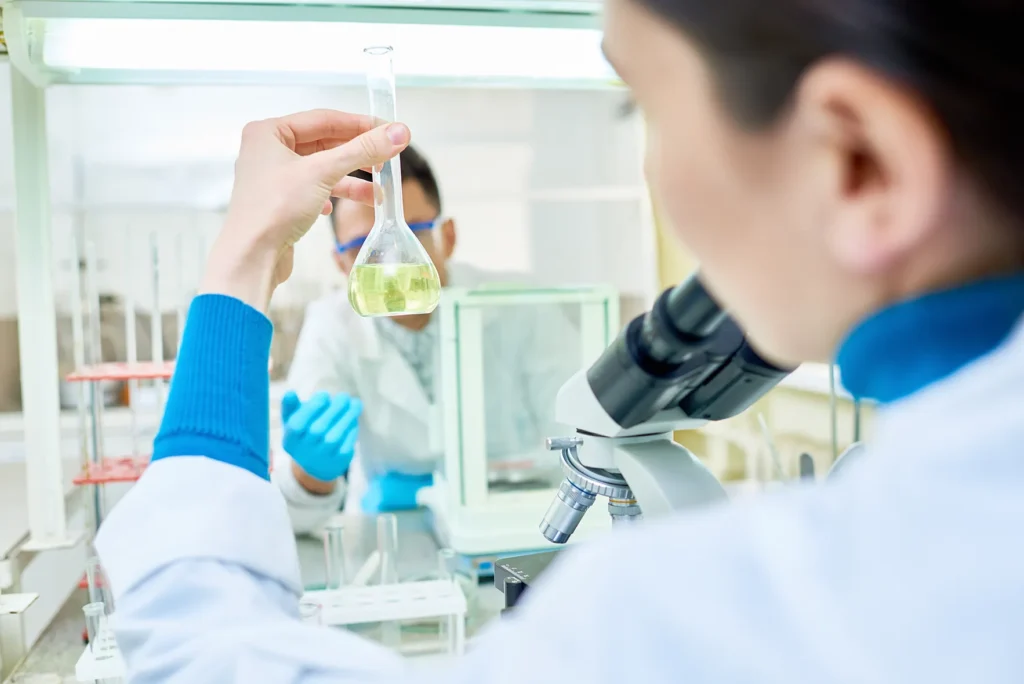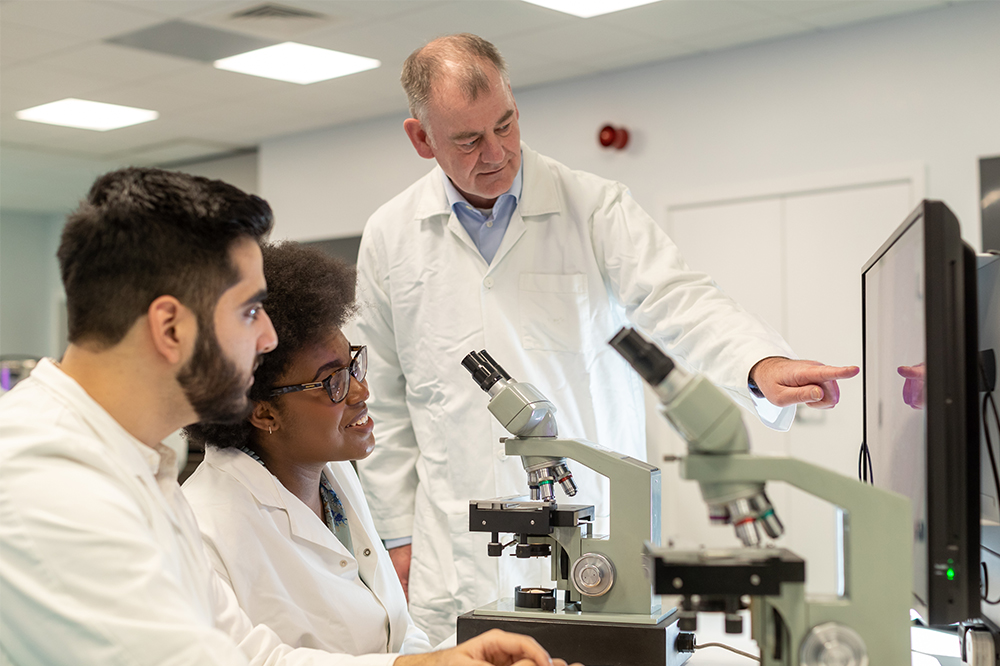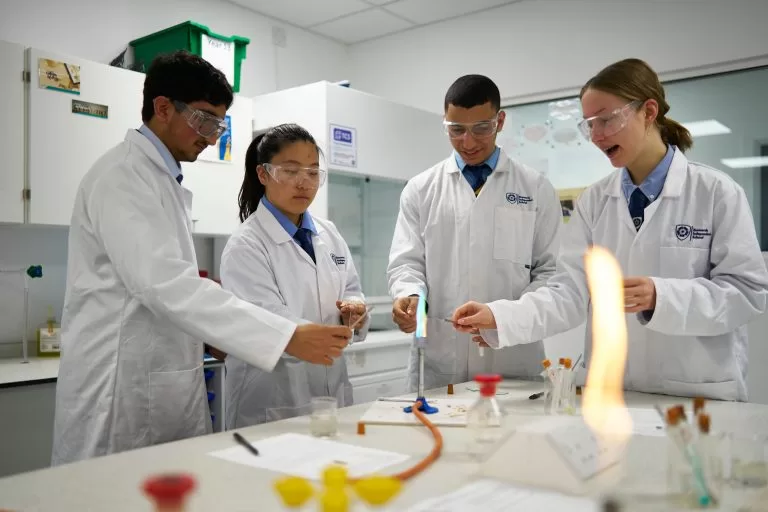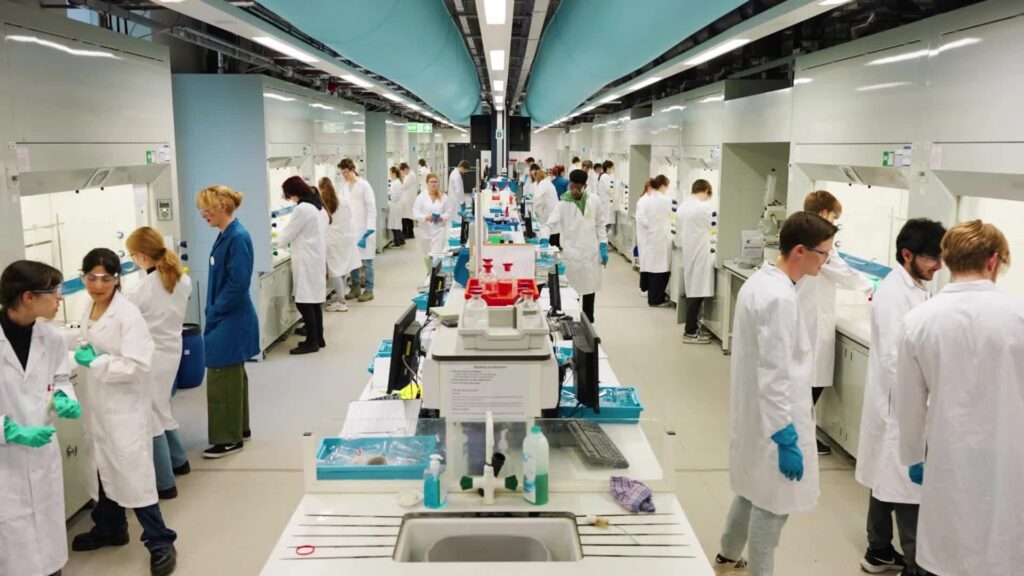Yes, chemistry is an essential subject for aspiring doctors. Understanding the principles of chemistry is crucial for comprehending various aspects of medical science, including pharmacology (the study of drugs), biochemistry (the study of chemical processes within living organisms), and physiology (the study of how living organisms function).
Chemistry provides the foundation for understanding how drugs interact with the body, how metabolic processes occur, and how diseases manifest at a molecular level.
So, while you may not need to be a chemistry expert, having a solid understanding of it is vital for success in medical school and in your career as a doctor.
What are the fundamental concepts of chemistry in medicine?

Chemistry plays a crucial role in medicine, underpinning various fundamental concepts that are essential for understanding the interactions between drugs and the human body. Some of these fundamental concepts include:
Atomic Structure
Atoms are composed of protons, neutrons, and electrons. The number of protons determines the element’s identity, while the number of electrons determines its chemical behavior.
Understanding atomic structure is crucial for understanding how atoms combine to form molecules, which are the basis of all chemical substances, including drugs.
Chemical Bonding
Chemical bonds are the forces that hold atoms together in molecules. Covalent bonds involve the sharing of electrons between atoms, while ionic bonds involve the transfer of electrons from one atom to another. Hydrogen bonds are weaker interactions between a hydrogen atom and an electronegative atom like oxygen or nitrogen.
The type and strength of chemical bonds influence the stability and properties of molecules, which is important in drug design and formulation.
Biochemistry
Biochemistry focuses on the chemical processes and substances that occur within living organisms. This includes metabolism, enzyme kinetics, molecular signaling, and the structure and function of biomolecules such as proteins, nucleic acids, lipids, and carbohydrates.
To comprehend how medications interact with biological systems and how the body metabolizes and excretes them, one must have a solid grasp of biochemistry.
Pharmacodynamics
Pharmacodynamics is the study of how drugs interact with their target molecules to produce a physiological effect.
This involves understanding concepts such as drug-receptor binding, agonism and antagonism, dose-response relationships, and therapeutic index.
Pharmacodynamics helps explain how drugs exert their effects and why they may have different effects in different individuals.
Pharmacokinetics
Pharmacokinetics is the study of how drugs are absorbed, distributed, metabolized, and excreted by the body.
This involves understanding factors such as drug absorption through various routes (e.g., oral, intravenous), distribution to different tissues and organs, metabolism by enzymes, and elimination through renal or hepatic pathways.
Pharmacokinetic principles are important for optimizing drug dosing regimens and predicting drug interactions and side effects.
Stereochemistry
Stereochemistry deals with the spatial arrangement of atoms in molecules and how this affects their biological activity.
Chiral molecules, which have non-superimposable mirror images (enantiomers), can exhibit different pharmacological properties.
In order to guarantee the synthesis of the intended enantiomer and prevent undesirable side effects or toxicities, it is crucial for medication designers to have a solid understanding of stereochemistry.
Acid-Base Chemistry
Many drugs exist in different ionization states depending on the pH of their environment. Understanding acid-base chemistry is important for predicting drug solubility, stability, and absorption in different physiological compartments.
The pH of the gastrointestinal tract, blood, and urine can influence the behavior of drugs and their pharmacokinetics.
Drug Formulation
Drug formulation involves the development of dosage forms and delivery systems that optimize drug stability, solubility, and bioavailability.
Chemistry is essential in formulating drugs into tablets, capsules, injections, creams, and other dosage forms.
Formulation scientists apply principles of physical chemistry, material science, and chemical engineering to design drug delivery systems that control drug release and target specific sites within the body.
How does chemistry influence medical education?

Chemistry is deeply woven into the fabric of medical education, providing a foundational understanding of how substances interact with the human body. At its core, chemistry forms the basis of many other sciences relevant to medicine, including biochemistry, pharmacology, and physiology.
Through the study of chemical principles such as bonding, molecular structure, and reactivity, medical students develop a comprehensive understanding of biological processes and drug actions. This knowledge extends to the realm of pharmacology, where students learn about the chemical structures of drugs, their interactions with receptors and enzymes, and how these interactions produce therapeutic effects or side effects.
Furthermore, biochemistry, which explores the chemistry of life processes, plays a pivotal role in medical education by elucidating the molecular mechanisms underlying cellular processes, metabolism, and disease. Moreover, chemistry underpins diagnostic techniques used in medicine, such as spectroscopy and immunoassays, enabling the detection and quantification of various substances in body fluids or tissues for disease diagnosis and monitoring.
From understanding the chemistry of hemoglobin to unraveling the molecular basis of diseases like cancer, chemistry provides medical students with insights that directly inform clinical practice. This knowledge not only aids in diagnosis and treatment but also fuels medical research and innovation, where researchers utilize principles of organic and medicinal chemistry to develop new drugs and diagnostic tools.
In essence, chemistry serves as a vital bridge between basic science and clinical practice in medical education, equipping students with the foundational knowledge necessary to understand and address the complexities of health and disease.
What are the practical applications of chemistry in medical practice?

Chemistry plays a crucial role in various aspects of medical practice, including:
- Making Medicines: Chemists create and improve medicines so they can help us feel better.
- Understanding Medicine: Chemistry helps us know how medicines work in our bodies and if they’re safe to use together.
- Finding Sickness: Doctors use chemistry to test our blood, urine, and take special pictures inside our bodies to see if we’re sick.
- Taking Pictures Inside: Chemistry helps make special pictures like X-rays that show doctors what’s happening inside us.
- Checking if Medicine Works: Doctors use chemistry to see if the medicine they give us is helping or if they need to give us something else.
- Figuring Out Sickness Causes: Chemistry helps scientists understand why we get sick so they can find better ways to help us.
- Making Safe Tools: Chemistry helps make sure the tools doctors use, like during surgeries, won’t harm us.
- Keeping Our Environment Safe: Chemistry helps keep our air and water clean and makes sure the things around us won’t make us sick.
Final Words
For everyone who wants to become a doctor, understanding chemistry is essential. Chemistry has a fundamental role in many parts of medical practice, from understanding how medications function in the body to detecting illnesses and creating therapies.
It’s not just about passing exams; it’s about ensuring patients receive the best care possible. So, if you’re considering a career in medicine, don’t underestimate the importance of chemistry—it’s the foundation of your journey to becoming a doctor.
